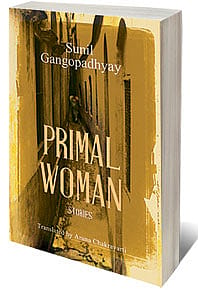Bleak House

A collection of translated short stories by the late Sunil Gangopadhyay reveals his preoccupation with man's inhumanity
Sunil Gangopadhyay is a literary institution. An atheist, a radical, co-opted by the establishment. Happily co-opted, it must be said, and by the end a pillar of that establishment—Poet Sunil, as Ginsberg called him in September on Jessore Road, turned president of the Sahitya Akademi. This is literary life (or perhaps just life): at one time, you're the firebrand, dismissing Tagore as soft and sentimental, founding experimental literary journals, inveighing against the status quo; and then, before you know it, you're 'the man', an abuser of power, rapacious, venal; a toad squatting balefully atop 'Literature'.
Luckily, whatever your personal foibles and peccadilloes, what is left behind as representative of 'you' is the work. And Sunil Gangopadhyay has left behind a lot of work, some of it memorable—'a considerable prose writer,' Amit Chaudhuri wrote in eulogy in the The Telegraph, 'and, at his best, an extraordinary and incomparable poet'—some of it less so. Primal Woman, a collection of short stories compiled and translated by Aruna Chakravarti, is relatively minor work. But the stories, ragged as they are, contain Gangopadhyay's signature themes: of human nature under stress, of man's inhumanity to man, as Robert Burns put it.
Imran Khan: Pakistan’s Prisoner
27 Feb 2026 - Vol 04 | Issue 60
The descent and despair of Imran Khan
In these stories, life is a Hobbesian affair, nasty, brutish but not necessarily short. These are people at war with each other, over ever more scarce resources. Bearing the brunt are the poor, subject to the whims of those higher up the economic ladder. And at the receiving end of poor, humiliated men are their families. Nibaran, in 'Hot Rice—Or Just A Ghost Story?', is starving, returning home in the driving rain that has washed away his budding cauliflowers and his chances of some daily wage construction labour; he surveys his starving, pregnant wife, children and ancient father: 'He felt like kicking them all, hard on their bellies, and throwing them out of the shack…. He was the one who needed food… If he lived they would all live. But did anyone understand this simple logic? He was surrounded by monsters with slavering jaws wide as the gates of hell.'
Women, and children of course, are particularly vulnerable. Typical of the women in these stories is Tinni, from 'A Peacock Feather': 'In all her twenty-three years the only kind man Tinni had known was Shibkumar… Her mother had died in her childhood. Her father came home drunk every evening and beat his children mercilessly… They had an aunt living with them who had hated Tinni from the very beginning… Tinni had put up with her aunt's cruelty but her son Bhaba's repeated attempts to rape her was the final straw.' In 'The Great World', 16-year- old Kushi is beaten without pause by both her parents. Her solace is both her indomitable spirit and the heavenly promise of a large Qantas advertisement. 'Kushi craned her neck to look at the hoarding each time a car passed. And wave after wave of ecstasy, a sensation she had never known before, passed over her.' Gangopadhyay, slyly, leaves you wondering about that ecstasy: the product of the illusions of advertising, or those provided by a groping lover whispering lies about the future?
Even the first woman on the planet, in the title story, is subject to the same demands and expectations that men have of contemporary women. Drawing on Jewish mythology, Ganguly writes not of Eve as the first woman but of Lilith, created like Adam from dust, who draws the ire of Adam and three interfering angels for wanting equality, for wanting her opinions and desires to be taken into account. But what could have been a bracing feminist revision ends in puerile fashion, with 'hell hath no fury as a woman scorned' clichés and Lilith as a succubus.
Gangopadhyay's vision is not relentlessly bleak. There is defiance and anger and, so, the spark of life in even the most downtrodden. In 'Crossing', a strange little story about an unknown man for unknown reasons being made to walk blindfolded across a narrow, rickety bridge, the raging Teesta below, the narrator reflects: 'Like everyone else, I too wanted to live. But was simply being alive enough? Even worms and insects lived. Human beings were different. Their lives had to have a certain quality. Self-worth and self-respect were part of it.' This is why we cannot cling to the desire of Gangopadhyay's characters to live in comfort, however scant.
The plain, discomfiting truth is that we have enabled a society in which 'bhaatuas' —bonded labourers, working in exchange for boiled rice—are a fact of life in the Indian hinterlands. Poverty forces people to make terrible compromises and do terrible things; but what is more frightening, as the behaviour of even those unencumbered by poverty proves, is that we don't need poverty to make us do terrible things. That is Gangopadhyay's bleakest insight.
